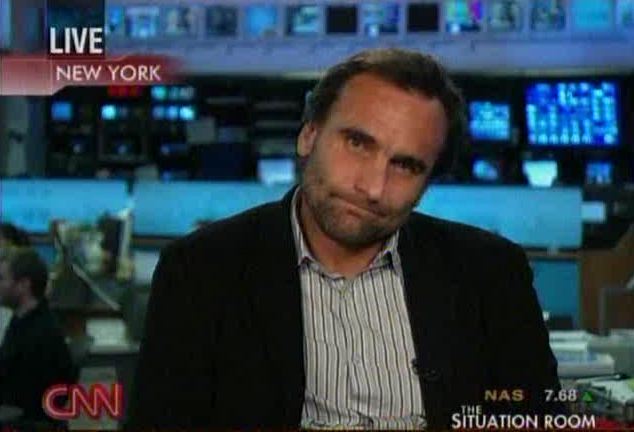TSR: "...one must bear in mind campaigning versus actually running a war."

Length: 3:46
LARGE (44.2 MB) ----- SMALL (4.5 MB)
Suzanne Malveaux talks to Michael about the surge, the realities on the ground, and what may be mentioned next week during the hearings.
(Big thanks to BA over at ATA for pulling this clip for me!)
SUZANNE MALVEAUX: Realistic or rosy, that new intelligence report on Iraq is sparking new controversy. Let's get a fact check. Our CNN's Michael Ware joining us live from New York, but he has spent most of his time in Iraq.
Really Michael, since day one since this war has begun we've been listening to John McCain, we've heard this idea from the administration that the so-called surge is making conditions on the ground better in Iraq. What is your assessment?
MICHAEL WARE, CNN CORRESPONDENT: Well, to a fair degree that's true and it's not true. What one has to look at is, first, what exactly is the surge. Well, I can tell you now it's far more than just 30,000 combat troops acceptability to reinforce the capital. That's just the thin veneer on the surface.
What the surge really is, as Ambassador Crocker and many others have told us, is that, really, it's about cutting deals with the Sunni insurgents who had been killing Americans; it's about Muqtada al Sadr telling his militia to lay low for his own political purposes, nothing to do with trying to help America; it's about segregating Baghdad into divided communities that perhaps irreparably has torn apart the fabric of Iraqi society but has prevented people from getting at each other to kill one another; and it's about a whole host of other political accommodations.
Now, it's also about a political surge where the state department and the embassy has been trying to force the Iraqi government and the various factions to agree on legislation and push it through. And that's had markedly mixed results. Even General Petraeus himself has said reconciliation itself, the progress on that is insufficient. And at the end of the day, that was the ultimate purpose of the surge.
But I have to tell you, whatever the reason, no matter how it's done, no matter how long it lasts, it's brought the death toll down by cutting the deals and separating the communities. And who is not thankful for that?
The one thing you must bear in mind, Suzanne, what are the costs of this strategy and what are going to be the consequences? There's a number of things that have been put in trend as a result of the surge to obtain these short-term goals, and at some point someone's going to have to pay for them, Suzanne.
MALVEAUX: Well that's a very good question, Michael, because we really don't know how much this is going to cost when it's all said and done. We've heard from Barack Obama's campaign, perhaps there seems to be a window opening here, 16 months to get the U.S. troops out. But do you think it's a good idea for a timetable in the first place? You've never been a big fan of that. Do you think it's good there's some flexibility that perhaps the candidates are showing?
WARE: Well, the notion of timetables is ludicrous to begin with, strategically and realistically. And I think that one must bear in mind campaigning versus actually running a war.
Now, certainly it's the hope of the commanders on the ground at the most senior levels that what's being said now may not necessarily be what's done when someone's sitting in the oval office.
Indeed, I was speaking to Senator Kerry in D.C. just yesterday. Even when he was outlining what he considered to be a responsible timetable for withdrawal, it was a much more nuanced approach than the bumper sticker kind of slogan that you're hearing from those candidates who are currently campaigning.
In Senator Kerry's version, which is on record, there still remained U.S. troops for some time to come. There was going to be renewed efforts in other fields and other areas, but it was not the let's pull out and go home. Indeed, he said, "we're not pulling the plug." So really I think there's a lot of wiggle room here and the American public need to be aware of that.
MALVEAUX: Sure. I spoke with Senator Kerry yesterday as well. It seems like it's going to be a lot more complicated for whoever really gets in the office there.
Thank you very much, Michael Ware, for your perspective. Obviously from day one inside of Baghdad. Thanks again, Michael.
